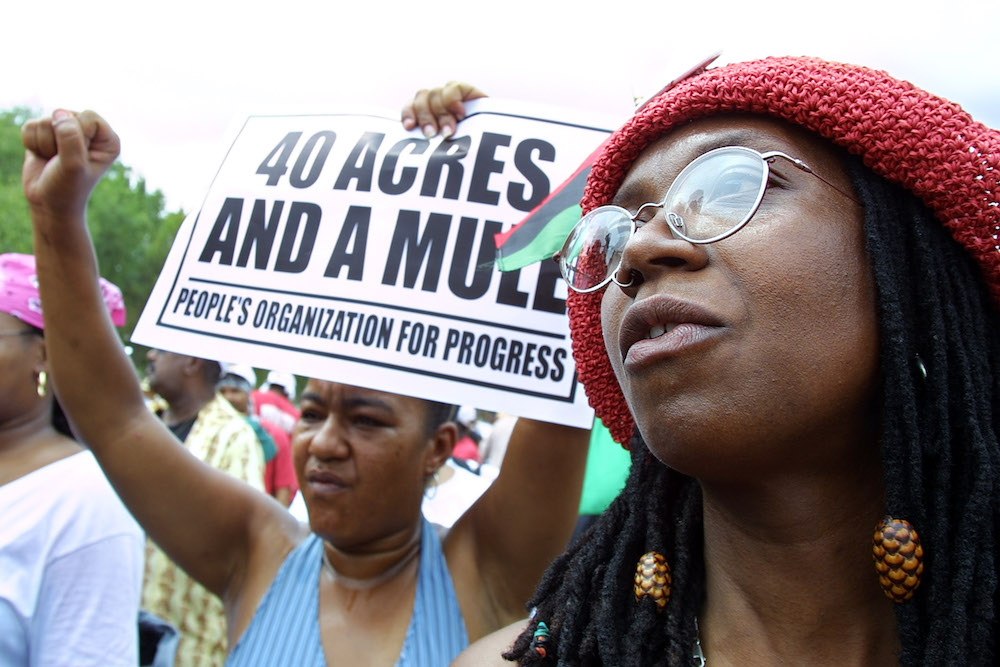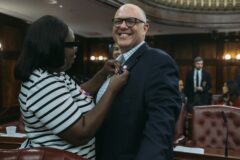In 2014, Ta-Nehisi Coates published “The Case for Reparations” in The Atlantic, turning a political issue that had spent years on the sidelines into a matter of national debate. Two years later, it doesn’t seem any likelier that the U.S. government will shell out cash in exchange for the centuries of torture it inflicted on African-American slaves, but the idea isn’t going away. Just yesterday, United Nations’ Working Group of Experts on People of African Descent published a report advocating for it.
The report, which you can read in full here, is not binding in any way, and as the Washington Post notes, it is extremely unlikely that the U.S. will take any action based upon its contents. The panel that compiled it is composed of human rights experts from around the world, and reports to the U.N.’s High Commissioner on Human Rights.
For a shorter argument in favor of reparations than Coates’ mammoth piece, consider the racial inequality that still plagues America a century and a half after slavery’s end. More than twice as many black people are currently living in poverty than white people when adjusted for population size; more than seven times as many are in prison. Unless you believe there is some inherent difference in the races that would affect each’s ability to achieve prosperity–in which case you can feel free to close this tab now–it’s hard to explain away those differences without grappling with the legacies slavery and Jim Crow.
It might seem like slavery has been over for a long enough time to smooth over its effects. It hasn’t. The period since the end of slavery is shorter than the period during which black people were enslaved by about a hundred years. There are plenty of people still alive today who remember a time when they were legally prohibited from attending good schools and living in nice neighborhoods. Today, black people are being arrested at rates much higher than whites for crimes that the races commit in roughly equal proportions.
For another argument, here’s an excerpt from the U.N. panel’s report:
…the prevalence of “Jim Crow” laws — laws at the state and local levels that enforced racial segregation and persecution, primarily in the southern states — perpetuated political disenfranchisement, social and economic exploitation, violence and the overall subjugation of people of African descent until the 1960s. Lynching was a form of racial terrorism that has contributed to a legacy of racial inequality that the United States must address. Thousands of people of African descent were killed in violent public acts of racial control and domination and the perpetrators were never held accountable….
Despite substantial changes since the end of the enforcement of Jim Crow and the fight for civil rights, a systemic ideology of racism ensuring the domination of one group over another continues to impact negatively on the civil, political, economic, social and cultural rights of African Americans today.
The reparations needn’t be strictly financial, the panel argues, advocating instead for the passage of H.B. 40, a bill introduced by the congressman John Coyners in 2013. H.B. 40 calls for the creation of a federal government commission that would examine the effects of slavery and determine appropriate restitution. That restitution, according to the U.N. panel, could include “a formal apology, health initiatives, educational opportunities, an African knowledge programme, psychological rehabilitation, technology transfer and financial support, and debt cancellation.”
The international community recognizes that reparations, whatever form they may take, are long past due. Maybe someday the U.S. will catch up.





